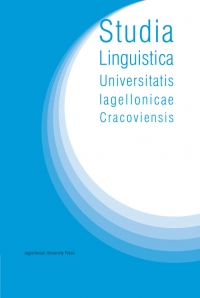Influence of sensorineural hearing loss on familiar speaker recognition: A forensic perspective on ageing
Influence of sensorineural hearing loss on familiar speaker recognition: A forensic perspective on ageing
Author(s): Jacek KuderaSubject(s): Phonetics / Phonology, Cognitive Psychology, Health and medicine and law, Gerontology
Published by: Wydawnictwo Uniwersytetu Jagiellońskiego
Keywords: forensic linguistics; phonetics; presbycusis; earwitnessing; line-up;
Summary/Abstract: The main goal of this research was to discover the influence of high frequency sensorineural hearing loss on familiar speaker recognition during earwitnessing line-ups. The secondary objectives were to estimate the influence of familiarity with voices of the suspects on performance in the auditory speaker recognition test, and to correlate the results with forensically important factors such as a confidence scale from the lineup markings. The recordings from the line-up sessions were low-pass filtered to ensure an equal degree of signal distortion for all subjects and imitate the moderate, severe and profound hearing loss conditions. The results show that the correlation between mimicked hearing impairment and ability to identify a familiar speaker is statistically significant. It was observed that higher degree of signal distortion caused lower accuracy of recognition. Interestingly, it was reported that higher levels of familiarity and exposure to speakers’ voices had a negative effect on speaker identification.
Journal: Studia Linguistica Universitatis Iagellonicae Cracoviensis
- Issue Year: 138/2021
- Issue No: 1
- Page Range: 29-47
- Page Count: 19
- Language: English

